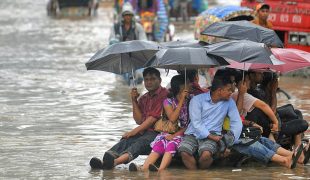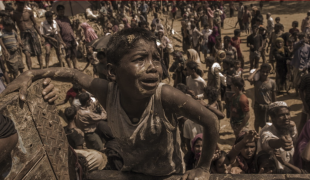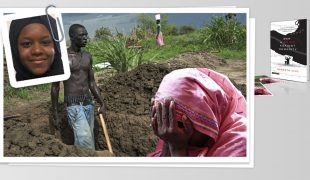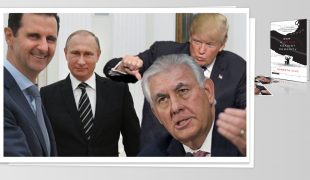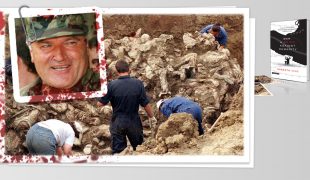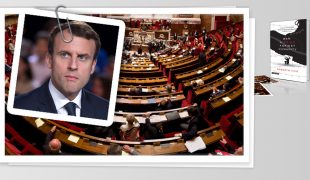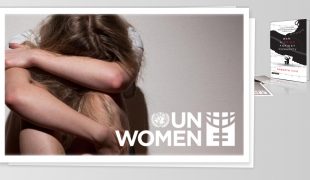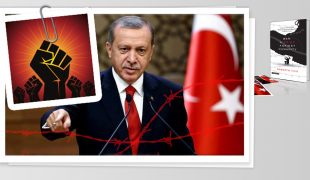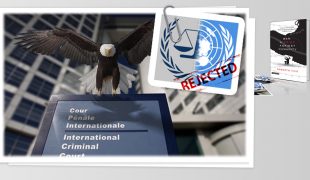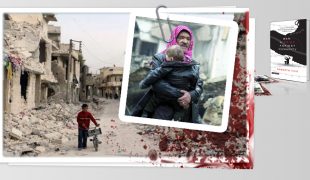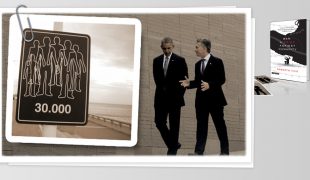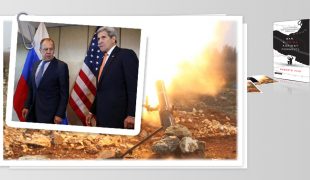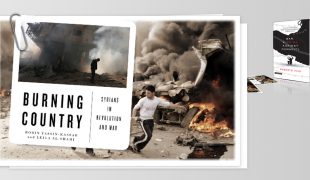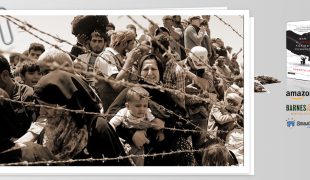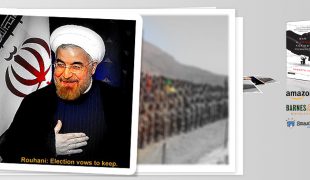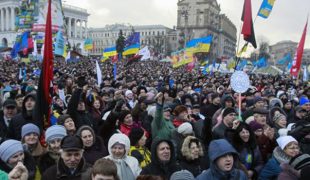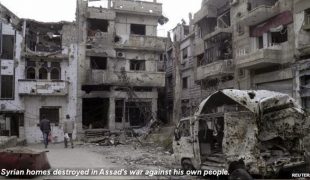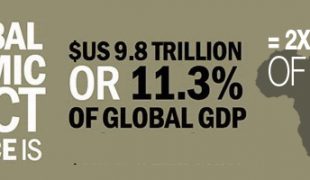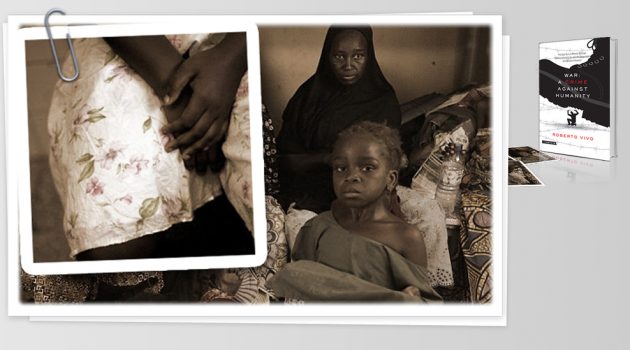
Rape as a weapon of war
An article by Kevin Sieff earlier this month in The Washington Post about the victims of Boko Haram’s rape camps in northern Nigeria has once again shed light on a topic all too often swept under the rug by the international media and by society in general. In his article, Sieff discusses how, on the heels of sound victories by Nigerian troops that have forced the radical Islamist terrorist organization from areas that it had claimed as part of its international caliphate, many women and girls have been liberated from their Boko Haram rapist captors, only to return home to a continuing nightmare of stigma, ostracism and distrust in which they remain prisoners of their horrific destiny.
When the Nigerian military liberated the areas where these women and children were being held and brutalized, they were freed from their captors and sent back “home”. But typically, they no longer have homes, due to Boko Haram’s policy of destruction in which whole villages and towns have been razed to the ground. Many of the women and girls, then, have been deposited in holding camps, often with children they have borne in captivity, where they live under guard and are referred to as “Boko Haram wives”. Because of the indoctrination they have undergone they are often considered suspect and are isolated from the societies of which they once formed part. The women about whom he writes were part of a systematic policy by which the caliphate has sought to disarticulate the societies that it invades through the kidnapping of women and girls en masseand forcing them into “marriage” (sexual slavery) with Boko Haram fighters. Some of the victims were as young as eight years old and many were adolescents. In general, they were kept in tiny huts, barely big enough to lie down in and their main task was to wait for their captors to return from patrol duty each night and submit to being raped repeatedly by their “husbands” and other fighters with whom they were shared. Those who resisted were routinely shot.
Sieff makes the point that, “few could have imagined such an outcome two years ago, when 276 schoolgirls were kidnapped by Boko Haram and the world responded with the “Bring Back Our Girls” campaign. While most of those schoolgirls from Chibok are still missing, many people assumed the other kidnapped women would be warmly welcomed back. Instead, they are shunned.”
The author of the article says that while, publicly, Boko Haram decries the Nigerian government’s Christian leanings and the marginalization of Muslims who form almost half of the country’s population, when it comes to their prisoners, the terrorists’ campaign seems more driven by unbridled sex and violence than by any religious or political ideology.
It took a long time for the world to become aware of these atrocious standard operating procedures employed by Boko Haram. I suspect that, sadly, this is because rape and general sexual violence have become so much a part of war in the late 20th and early 21st centuries that no one paid a great deal of attention to the frequency and scale of it in the particular case of this terrorist organization until the Bring Back Our Girls campaign sparked increasing curiosity. It wasn’t until last year that United Nations Secretary General Ban Ki-moon referred to the Boko Haram war rapes as a calculated and intentional “tactic of terror”.
Wartime sexual violence has played a role in conquest since the invention of war. It wasn’t even until the Age of Chivalry in the latter Middle Ages that it started to be considered unbecoming action for soldiers to rape the wives and daughters of their conquered foes. In more modern times, however, there has been advancement toward the normative criminalization of sexual violence on an international level.The camps where Boko Haram’s “liberated” kidnapping and rape victims are held in Nigeria are under twenty-four/seven military guard and the residents are randomly hauled off to military headquarters for questioning. Sieff provides testimony from a number of sources to show that the victims are now viewed as suspects rather than as martyrs in an ideological and ethnic war. So deep-seated are these suspicions that Sieff quotes stigmatization emanating from unexpected sources. Says, for instance, Ann Darman, of the Gender Equality, Peace and Development Center, a Nigerian aid group that often works with the United Nations, “The simple truth is they (Boko Haram rape victims) pose a serious threat to the general public.”
Perhaps the earliest attempt to do so was the so-called Lieber Code of 1863. This was an instruction signed by US President Abraham Lincoln and drafted for the Lincoln administration by the German-American legal scholar and political philosopher Franz Lieber. Considered the first codification of international customary laws of land warfare, the Lieber Code was very clear not only about the treatment of prisoners but also, and more importantly, about the responsibility of military leaders to protect all civilians in the course of fighting wars. It was, moreover, also crystal clear about sexual violence in war, stating that “all rape (is) prohibited under the penalty of death.” As such, it contained the very first prohibition—and a trenchant one at that—of rape to be included in norms of customary humanitarian law.
A few decades later, the Hague Conventions of 1899 and 1907 took up the subject once more, explicitly directing that “family honor and rights (and) the lives of persons…must be respected” by the forces occupying conquered lands. And repeated proof of sexual violence on the part of the German Empire and its allies led the Commission of Responsibilities set up after World War I to include rape and forced prostitution among the list of violations of standing laws and rules of engagement, if, in the end, attempts to prosecute for these charges were unsuccessful.
If World War I failed to establish rape as a punishable war crime, despite typifying it in the list of German violations, World War II only underscored this trend. There was considerable proof of such violations having been committed on a large scale in the European Theater, but—perhaps because of the overwhelming scale of the Nazis’ other war crimes—there was no consensus for including charges of rape or other sexual violence (despite ample testimony attesting to it) among those brought against German war criminals at the Nuremberg Trials following the war. Furthermore, it might surely have been seen as hypocritical to do so considering that one of the Allied victors in the world conflict had a truly notorious record for committing crimes of sexual violence in the areas of Germany that it occupied. It is believed that the Soviet Union’s Red Army soldiers, acting under the slogan “from eight to eighty,” raped at least 100,000 German women in Berlin alone during and after World War II, and some historians estimate that as many as two million women in Germany became Red Army rape victims throughout the course of the war. One Russian writer, who served as an officer in the Red Army during World War II, would observe in a diary entry that Russian soldiers were loath to have individual liaisons with German women but thought nothing of getting together “nine, ten or twelve” at a time and collectively raping them.
Oddly enough—but then again, perhaps, not oddly at all, considering the well-documented racial prejudice against the Japanese that skewed the West’s post-war handling of Japan versus Germany—rape was indeed included in charges brought against Japan’s military leaders in the Tokyo Tribunals. In one particularly notorious case, Japanese officers were charged with “failing to prevent rape,” in the case of the “Rape of Nanking”, a city in China where, just within the first weeks of its occupation by imperial Japan’s forces, 22,000 women and girls were raped.
But it has only been in the last two decades that international criminal and human rights law has set out to define a new understanding of systematic sexual assault, with emphasis on rejecting the long-standing and largely misogynous notion that while rape may well be a horrific offense to human dignity, it is also, regrettably and irrefutably, part and parcel of the unavoidable consequences of war. Perhaps the institution that has gone furthest toward dispelling such quasi-justifications and toward assigning appropriate gravity to this heinous war crime is the International Criminal Court (ICC) in The Hague. Already in the Rome Statute, by which the ICC was founded, war rape was defined as a crime against humanity. In fact, the statute went beyond the passing mention of rape to typify rape, sexual slavery, enforced prostitution, forced pregnancy, enforced sterilization and “any other form of sexual violence of comparable gravity” as crimes against humanity, whenever they form part of a widespread or systematic practice.
Other legal specifications have followed. For instance, in international law, rape is now considered a crime against the physical and mental integrity of the victim. This constitutes a major advance over 1977 protocols added to the 1949 Geneva Conventions that only conceded that the raping of women and girls was a crime against honor and dignity and against the proprietary rights of males related to the victims. Precedents set in human rights cases involving acts of systematic sexual assault in Rwanda, Peru and Turkey have led to definitions of rape as a war crime, an act of genocide and an act of torture. In the course of its investigations, the ICTY has further specified the definition of sexual assault by including acts of oral penetration as rape, while the ICC has been very specific in stating that even the slightest penetration of any part of the body of the victim with a sexual organ, or of the anal or genital opening of the victim with an object or other body part, such as fingers or hands, can constitute rape. And in 2003, the European Court of Human Rights made it clear that the use of physical force is not necessary in order for sex acts to be considered rape, if penetration is accomplished by the perpetrator through coercion or by taking advantage of a coercive environment in order to commit the deed.Jurisprudence was set in this regard by the International Criminal Tribunal for the former Yugoslavia, a body set up in The Hague in 1993, in accordance with a 1991 United Nations mandate, to investigate and try crimes against humanity committed during the Yugoslav Wars. The ICTY—which remains active today—set a precedent on investigating the systematic and widespread gang-raping of Muslim women (estimates run from 20,000 to 50,000 women and girls) by Bosnian Serb soldiers, police officers and paramilitary groups following the conquest of the city of Foca in 1992. The ultimate indictment applied the letter and spirit of the Geneva Conventions and of the international Laws and Customs of War in issuing arrest warrants for those alleged to be responsible. The legal norms applied were under headings covering torture and enslavement and in the verdict that the tribunal ultimately handed down, it specifically defined rape and sexual enslavement as crimes against humanity, directly challenging the all too widespread acceptance of sexual and sexually related assault as intrinsic aspects of war.
Still, with the rise of barbaric, lawless jihadist movements like Boko Haram, Islamic State, and other nihilist terrorist organizations, rape, sexual torture and sexual slavery have become a growing part of armed conflict, as they have in strictly ethnic confrontations. In all of these cases rape, in all of its manifestations, is being used as a systematic weapon of war, as an encouraged “reward” for fighters holding conquered regions, as a means of “ethnic cleansing” in which, as in the cases in Nigeria mentioned earlier, Christian women, for instance, are kept in rape camps until they are impregnated by Islamist fanatics, in the underlying belief that this is a way of populating the caliphate with children “of Muslim blood” while defiling, humiliating and terrorizing communities where other belief systems are prevalent.
It took the UN until 2008 to pass a resolution that describes rape as a “tactic of war” and, as such, “a threat to international security.” But the difficulties of going from words to actions in dealing with this monumentally widespread atrocity are clear considering investigations into reiterated reports of rapes and other kinds of sexual assaults perpetrated by UN peacekeeping troops and UN staff members in conflict zones. While, clearly, rape doesn’t form part of a systematic tactic of war within the UN peacekeeping operations, observers point out that the lawlessness of war zones as such generates situations in which “peacekeepers” are in a position of power over helpless civilian populations and, depending on their level of training in their home countries, their discipline as soldiers and their cultural background concerning gender relations, as well as on how well commanded and instructed they are within the UN peacekeeping service, they may be as prone as any other military unit to take advantage of their power for the purpose of perverse sexual gratification.
In short, despite recent efforts to catalog sexual aggression in war as a serious crime against humanity, those convicted of it remain few and far between. No matter how far the specification of rape and the surrounding jurisprudence under international law may have come, in a world in which major powers consider as “collateral damage” the murders of thousands as a result of their own acts of war, rape continues within warring cultures to be shrugged off as a sort of “misdemeanor”. The only way of dealing definitively with rape, then, is for the world to embrace a much broader cultural framework of peace that defines wars of aggression and all of the atrocities that they engender, as crimes against humanity and to find much more effective ways of holding their perpetrators, from the top down, criminally liable under international law.




